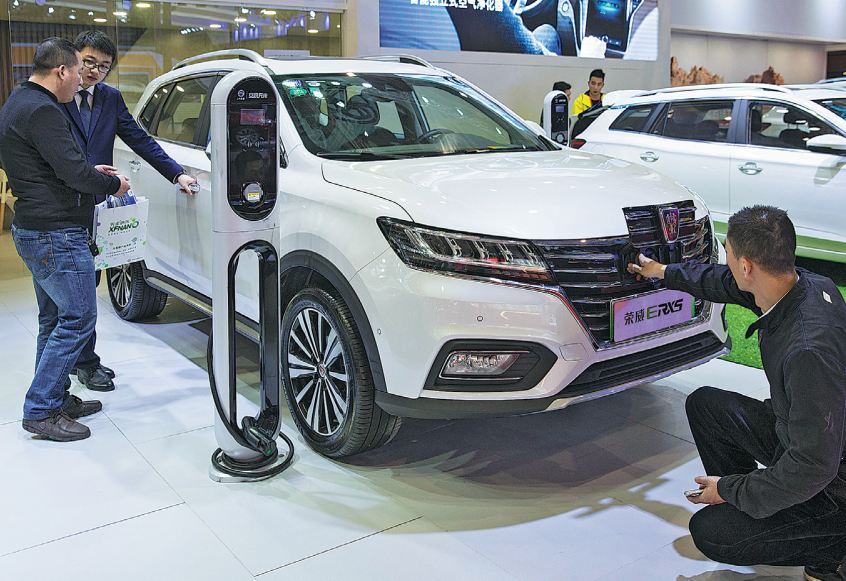Experts warn of fluctuations for China's new energy market
By Cao Yingying | China Daily | Updated: 2018-10-08 11:24

Potential upsets include end of subsidies for new energy vehicles
China's new energy automotive industry is facing fast-evolving changes and must adapt if it is to continue to thrive, said experts at a recent conference.
The Global Future Mobility Conference was organized by China EV100, the country's largest electric vehicle research organization, and held in Hangzhou, Zhejiang province, at the end of September.
"Auto enterprises should make and adjust their strategies according to their own research into the changeable situations at two time points - 2020 and 2025," said Chen Qingtai, director of China EV100.
As the largest car market in the world, China has been promoting the industrialization of electric vehicles for the past 10 years with the support of the government.
According to statistics from the China Association of Automobile Manufacturers, a total of 412,000 new energy vehicles were sold in the country in the first half of 2018, up 111.5 percent compared with same period last year.
However, by 2020, government subsidies for new energy vehicles will have ended.
Under a new scoring system introduced this year, automakers and importers are to be evaluated annually for both fuel consumption of traditional cars and their output of new energy vehicles.
For each new energy vehicle produced or imported at least one credit will be earned, depending on a number of factors such as the vehicle's range. Those with an annual production or imports of more than 30,000 traditional vehicles must accumulate credits equating to 10 percent of their traditional vehicle output by 2019, rising to 12 percent in 2020. Any company failing to meet these goals will have to buy credits from other automakers or be fined.
Chen is concerned that fierce competition over quality, price and brand awareness will cause less competitive carmakers to be marginalized over the next two years, leaving the gap between auto manufacturers to widen.
He predicts that by 2025, new energy vehicles will be more cost-effective than fuel vehicles, piling additional pressure onto traditional automakers.
In the future, a new energy vehicle's range or the availability of charging points will not be the main concerns, he said, pointing to emerging technologies such as self-driving cars that require cooperation between carmakers, IT enterprises and related industries.
Under such changing circumstances, it is inevitable that Chinese auto enterprises will move toward becoming mobility service providers instead, according to Zhang Yongwei, chief expert at China EV 100.
Mobility service providers offer travelers access to transport solutions using intelligent management platforms based on big data, such as Didi Chuxing already does in China.
Other options for current carmakers include becoming an original equipment manufacturer or doubling down on building up their brand and producing competitive cars, Zhang said, though he was quick to add that autonomous vehicles will be key to the future of transport, as they can make travel more efficient and reduce the cost of getting around while improving on safety.
























